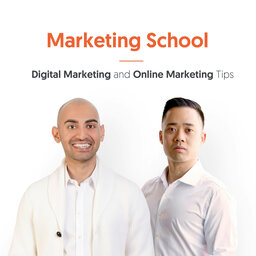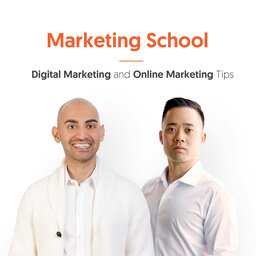Why It’s Better To Experience Share Than To Give Advice #2180
In episode #2180, Neil and Eric talk about why it’s better to share stories of your experiences than to give advice. Whenever you give someone advice you’re taking a risk because you have no way of predicting the outcomes with 100% certainty. Sharing your takeaways from past experiences can be a powerful and effective way of empowering others to make their own decisions. Tune in as we discuss the risks and nuances of giving advice when to unpack your experiences, and more!
TIME-STAMPED SHOW NOTES:
- [00:20] Today’s topic: Why It’s Better To Experience Share Than To Give Advice.
- [00:34] Why Eric prefers to experience share than give advice.
- [01:29] The risks of giving advice to someone.
- [02:22] Examples of instances where giving advice is helpful and why you should add a disclaimer.
- [03:34] How we approach recommendations on this podcast and why it’s all backed up by reputable data.
- [04:03] The expression ‘strong view loosely held’ and why it resonates with us.
- [04:27] That’s it for today! Don’t forget to rate, review, and subscribe to this podcast!
- [04:34] Go to https://www.marketingschool.io to learn more!
Links Mentioned in Today’s Episode:
- Subscribe to our premium podcast (with tons of goodies!): https://www.marketingschool.io/pro
Leave Some Feedback:
- What should we talk about next? Please let us know in the comments below
- Did you enjoy this episode? If so, please leave a short review.
Connect with Us:
Learn more about your ad choices. Visit megaphone.fm/adchoices
 Marketing School - Digital Marketing and Online Marketing Tips
Marketing School - Digital Marketing and Online Marketing Tips


